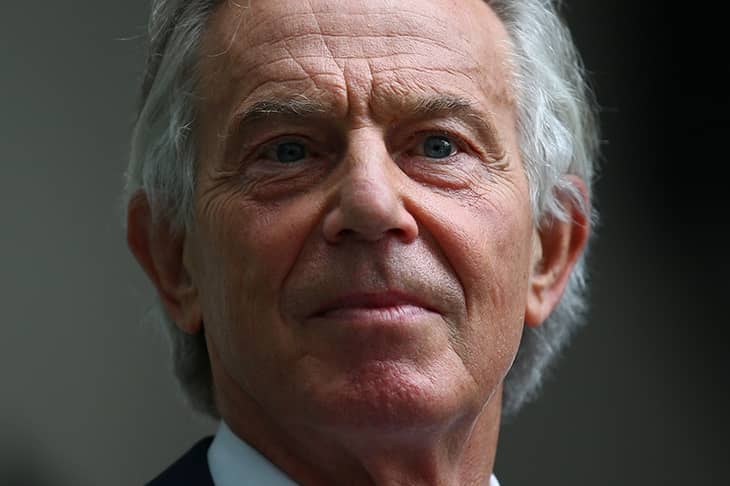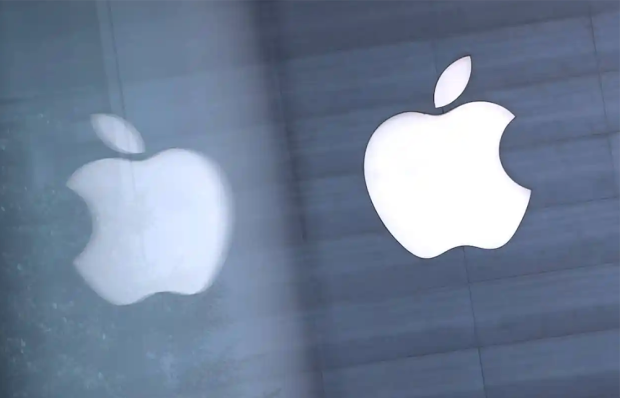I’m picturing Sir Tony Blair enjoying a fitting of his Garter robes after watching Boris Johnson stagger through PMQs. ‘I’m in the clear these days,’ he’s thinking. ‘So much water under the bridge, what could possibly come back to haunt me?’ Well, here are two items he might like to consider: the application of the 2003 US-UK extradition treaty in the case of Dr Mike Lynch; and Foreign Secretary Liz Truss’s statement that new sanction rules will mean ‘nowhere to hide for Putin’s oligarchs’ and their fin-ancial assets.
Lynch was the founder of Autonomy, a UK software firm which Hewlett-Packard of the US bought in 2011 for $11 billion — but subsequently declared worth very little, accusing Lynch of cooking its books to secure the price. The Home Secretary having last week approved his extradition to face fraud charges, Lynch is now set to join a line of British businessmen extradited under the 2003 treaty that was adopted as an anti-terror measure but has been criticised ever since for the way US justice uses it ruthlessly to lift white-collar UK suspects — whose only hope thereafter is to plea-bargain for mercy. No comparable flow of US executives has been brought to trial over here — and every use of the treaty is a reminder of Blair as Bush’s poodle.
Likewise ‘Putin’s oligarchs’ must think warmly of the early 2000s when they first bought London mansions and opened City trust accounts. Proposed reforms designed to make kleptocrats’ money less welcome have largely been frustrated by vested interests ever since.
Nicholas Shaxson in his 2011 book Treasure Islands highlighted the case of President Sani Abacha of Nigeria, who had skimmed billions of his nation’s oil revenues; after his death, a new Nigerian government tried to find the loot. Swiss banks eventually yielded $500 million. But what of London, where he was believed to keep a huge stash? ‘[We] raised the matter many times with Tony Blair,’ said finance minister Ngozi Okonjo-Iweala. ‘Eventually he returned $3 million.’
Quantum leap
Quantum Apocalypseis a 2010 disaster movie about a comet heading for Earth. It was upstaged last year by Don’t Look Up, Adam McKay’s satire on the same theme — while the phrase ‘quantum apocalypse’ has been reapplied to a different threat to civilisation, which cyber experts believe could also be rapidly approaching. This is the possibility that powerful ‘quantum’ computers, almost certainly Chinese, will become capable of harvesting the rest of the world’s encrypted data — everything from weapons systems to bank account details — and eventually decoding them.
Chinese Threats in the Quantum Era, a paper by the consultants Booz Allen Hamilton, offers this scary factoid: in 2020, Chinese scientists claimed to have built ‘a computer named Jiuzhang which could perform a specific computation in a few minutes that the world’s most powerful supercomputer would require more than two billion years to complete’. If that’s so, China’s potential adversaries need impenetrable ‘post-quantum encryption’ to be perfected pronto — offering a huge opportunity for next–generation entrepreneurs.
But the risk, of course, is that Chinese interests will also try to acquire that post-quantum software, most directly by buying up the western companies that develop it. Hence — a Westminster source tells me — the real political impetus behind the National Security and Investment Act (of which I wrote recently) giving government stronger powers to block foreign takeovers.
Destiny calls
Meanwhile, Microsoft bought Activision Blizzard, maker of Call of Duty, for $69 billion; Sony responded by acquiring Bungie, creator of Destiny, for $3.6 billion; while the New York Times is buying the viral sensation Wordle; and all this is important enough to feature in BBC news bulletins. My point is that while China has been creeping towards ‘quantum supremacy’, Silicon Valley and its backers have instead devoted large resources to trivial online games — a criticism addressed in Sebastian Mallaby’s new book The Power Law. What’s worse (leaving aside the harmless brainteaser Wordle), the sector’s most lucrative products are all mind-rottingly violent ‘first-person shooter’ formats. If Beijing one day pushes a button that puts civilisation in peril, billions of addicted players will probably think it’s just a new level of the game.
Sexy shark
Eating out, by contrast, is never a trivial matter in this column. I said last month I was looking forward to the opening by veteran restaurateurs Chris Corbin and Jeremy King of Manzi’s, a seafood eatery which will revive a once-famous Soho name that also happens to remind me of my long-gone theatrical uncle Gilbert, a habitué of the old Manzi’s off Leicester Square. But the new site —in a sad alley called Bateman’s Buildings — remains boarded up. And now Corbin & King Ltd (which also owns the Wolseley, Delaunay and Brasserie Zedel) has been forced into administration by its majority shareholder, the Bangkok-based hotel group Minor International, to which it has large debts. King says it’s ‘business as usual’ in the kitchens but the company itself is ‘under siege’ — and anyone who enjoys the theatricality of their dining offer will hope a cash-rich rescuer is swiftly found.
Step forward — possibly — the permatanned billionaire Richard Caring, who made his first pile as a rag-trade associate of Philip Green and now owns The Ivy and the Asian-themed Sexy Fish. Caring himself could be described at 73 as a sexy old shark: my journo chum Chris Blackhurst once lost to him at golf and found him ‘more like a snake-hipped, ageing ballet dancer than a business tycoon… I’ve never seen anyone with whiter, more perfect teeth’. London diners would be glad to see him sink them into the money men of Minor International.
Got something to add? Join the discussion and comment below.
Get 10 issues for just $10
Subscribe to The Spectator Australia today for the next 10 magazine issues, plus full online access, for just $10.
You might disagree with half of it, but you’ll enjoy reading all of it. Try your first month for free, then just $2 a week for the remainder of your first year.















Comments
Don't miss out
Join the conversation with other Spectator Australia readers. Subscribe to leave a comment.
SUBSCRIBEAlready a subscriber? Log in